Are you curious about ancient civilizations and archaeological finds? Here are the archaeology museums you must see in Andalusia:
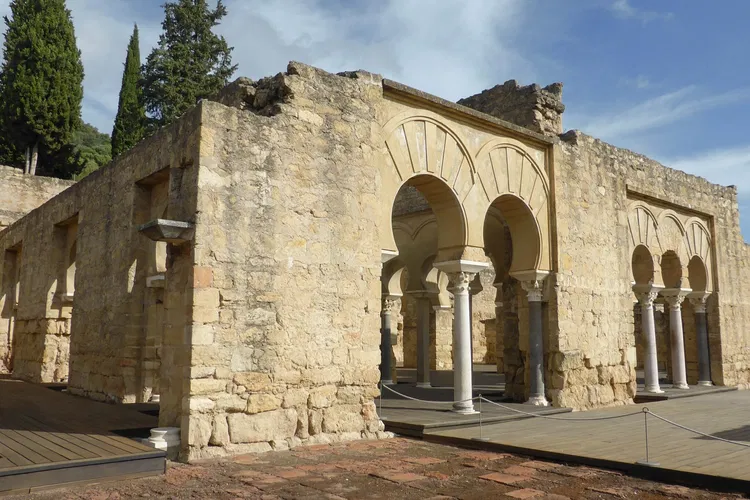
Madinat al-Zahra
CórdobaMadīnat az-zahrāʾ, also known as Medina Azahara, is a historical site located in southern Spain. It is situated approximately eight kilometers west of Córdoba and offers a panoramic view of the valley and the city of Córdoba. This former palace city is a significant part of Spain's rich history and is a fascinating destination for tourists interested in historical and architectural exploration.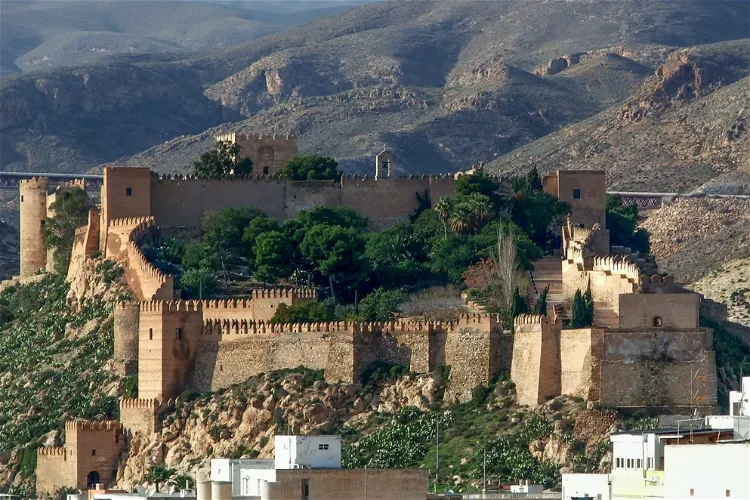
Alcazaba of Almería
AlmeriaThe Alcazaba of Almería, located in southern Spain, is a fortified complex with a rich history dating back to 955. This structure was not only a defensive citadel but also the seat of local government, overseeing the city and the nearby sea. Its strategic location and historical significance make it a fascinating destination for tourists interested in history and architecture.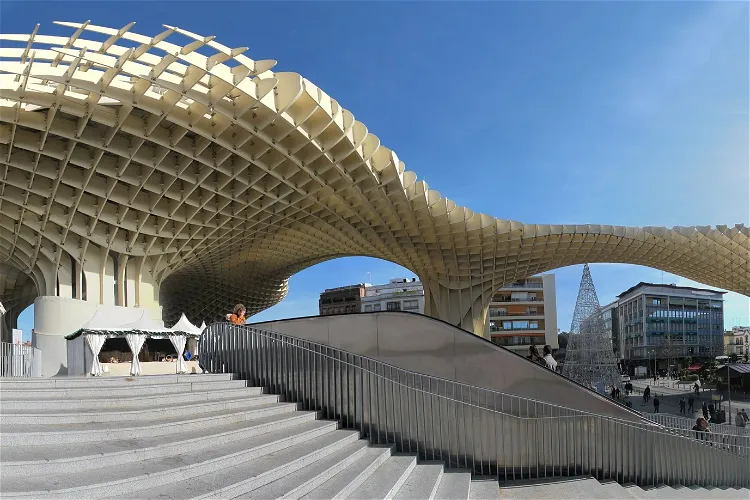
Mushrooms of Seville
SevilleThe Setas de Sevilla, also known as the Mushrooms of Seville, is a significant landmark in the old quarter of Seville, Spain. This large wooden structure is located at La Encarnación square and is a notable attraction for tourists visiting the city. The structure was designed by German architect Jürgen Mayer and was completed in April 2011. It is approximately 150 by 70 metres in size and stands at an approximate height of 26 metres.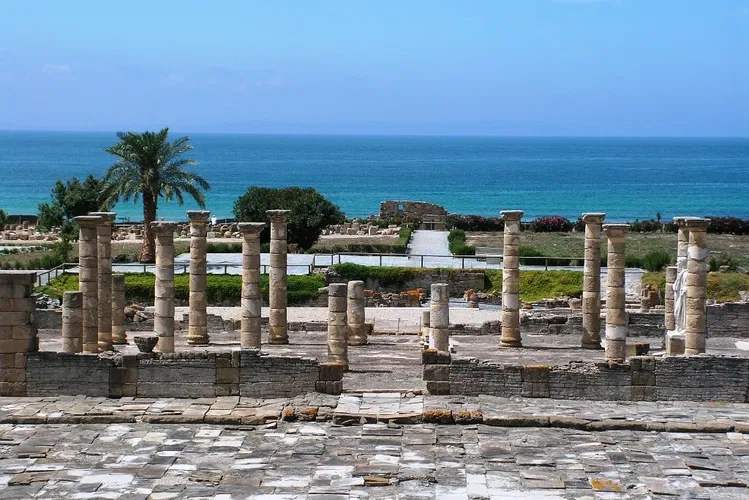
Baelo Claudia
TarifaBaelo Claudia is a Roman ruin city that is situated approximately 17 kilometers northwest of Tarifa, in the direction of Cádiz on the Atlantic coast. It is located right on Playa de Bolonia, offering visitors a unique blend of historical exploration and beachside relaxation.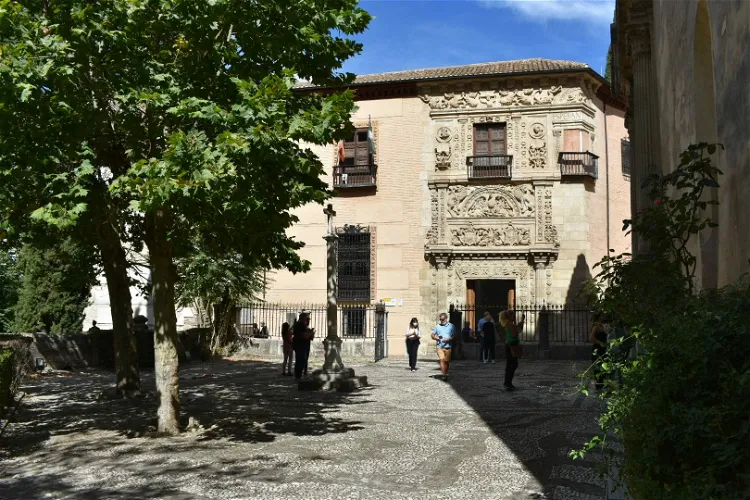
Castril Palace
GranadaCastril House, a Renaissance palace, is situated in the Spanish city of Granada, within the autonomous community of Andalusia. Today, it serves as the home of the Granada Archaeological Museum. This location offers visitors a chance to explore the rich history of the region through the museum's extensive collection.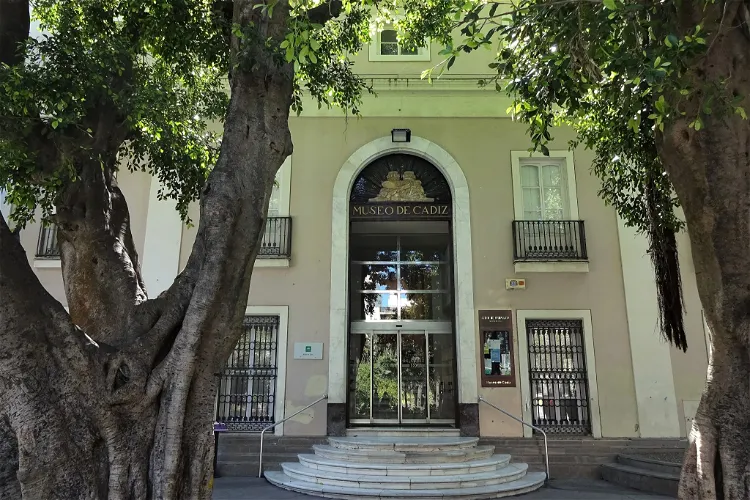
Cadiz Museum
CádizThe Cadiz Museum is situated in the heart of the old town of the Andalusian city of Cadiz, specifically at Plaza de Mina. This location is steeped in history and offers a unique cultural experience for visitors. The museum building itself was restructured by architect Juan Daura based on his 1838 design, transforming part of the secularized Franciscan convent.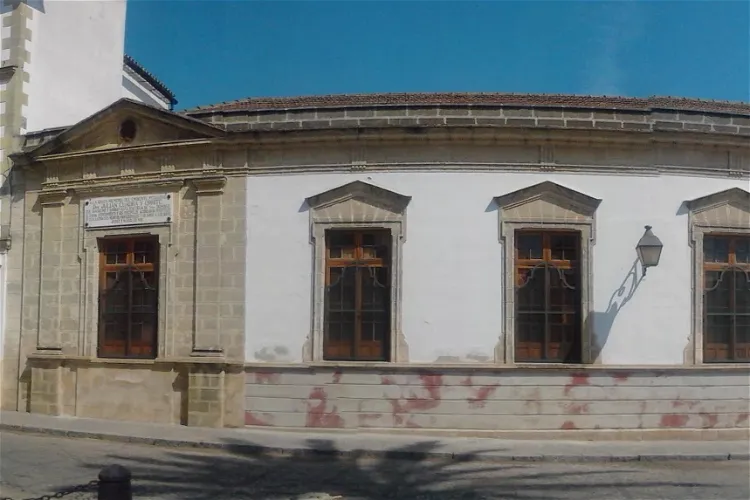
Museo Arqueológico Municipal de Jerez
Jerez de la FronteraThe Museo Arqueológico de Jerez is an archaeological museum situated in Jerez de la Frontera, a city in Andalucía, Spain. It is recognized as one of the most significant museums in both the city and the province of Cádiz.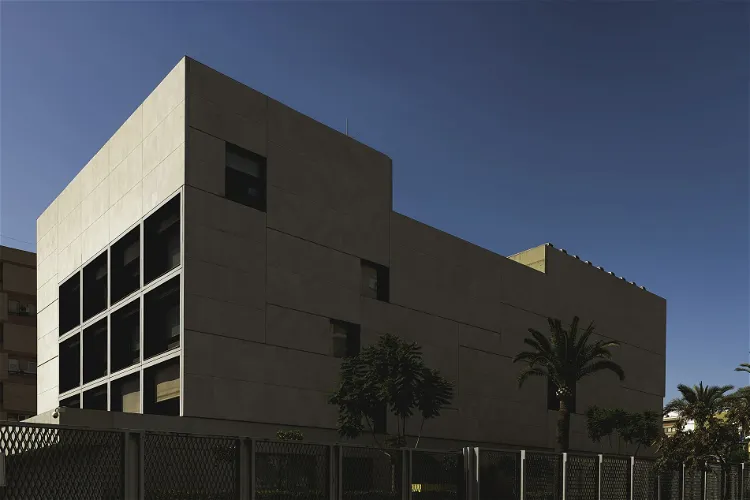
Museum of Almería
AlmeriaThe Museum of Almería, located in the Province of Almería, is an archaeological institution that has been serving the public since 1934. In 2006, the museum relocated to a new building, providing a modern and spacious environment for its exhibits.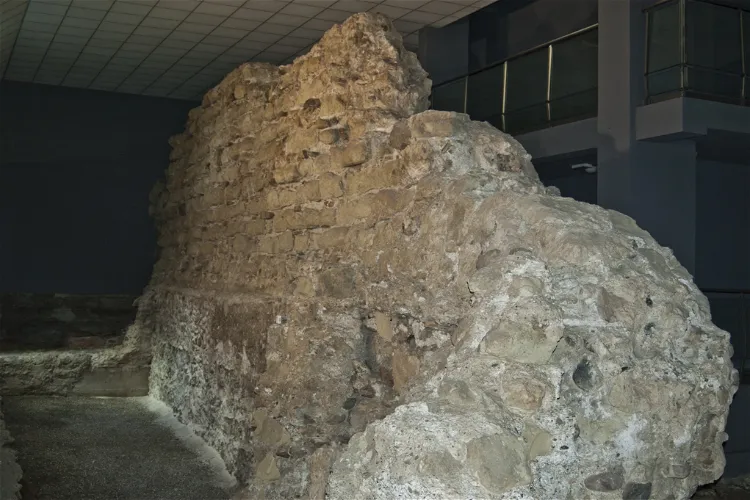
Enclave Arqueológico Puerta de Almería
AlmeriaThe Enclave Arqueológico Puerta de Almería is home to the only preserved Roman archaeological remains in the city. These include a salting factory, which is a significant testament to the city's ancient industrial history. Additionally, the museum also houses one of the gates of the Islamic wall that once enclosed the city to the south. This gate is a remarkable example of the city's medieval architectural heritage.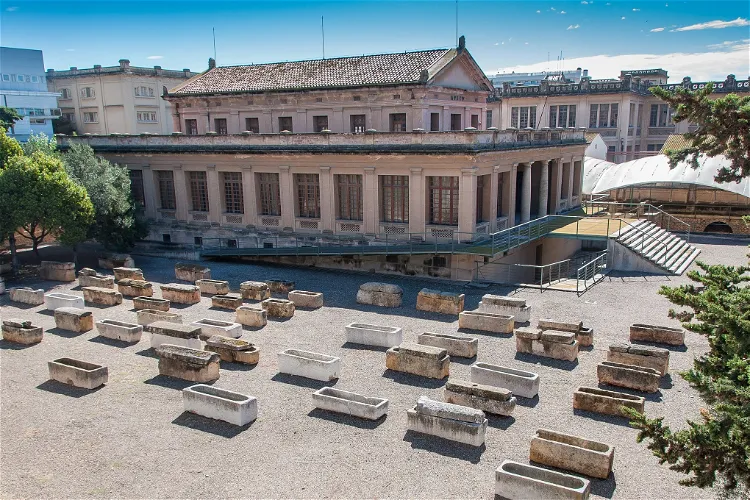
Roman Necropolis of Carmona
CarmonaThe Carmona Archaeological Ensemble, also known as CAC or CAE, is an archaeological site located in the Spanish municipality of Carmona. The site is represented by a Roman necropolis and amphitheater, which date back to the 1st and 2nd centuries AD. These historical structures provide a glimpse into the past and offer a unique opportunity to explore the rich history of the region.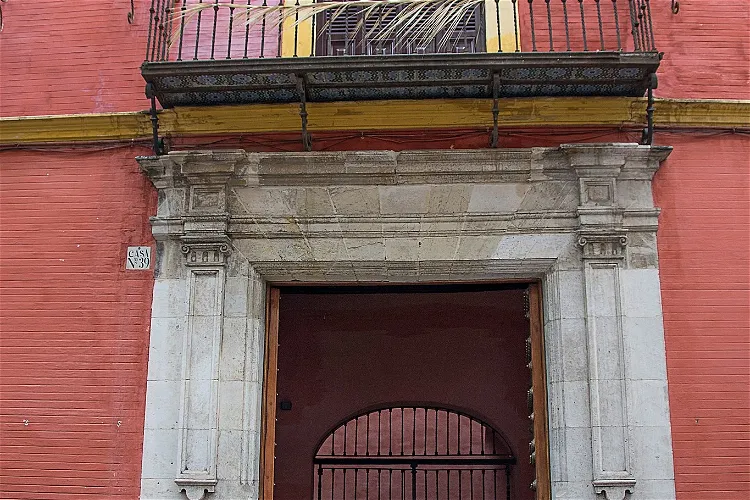
Casa de Salinas
SevilleLa Casa de Salinas is a significant historical site located in the heart of Seville, Andalusia, Spain. This 16th-century building is a testament to the rich architectural heritage of the region. Its location in the city's historic center makes it easily accessible for tourists.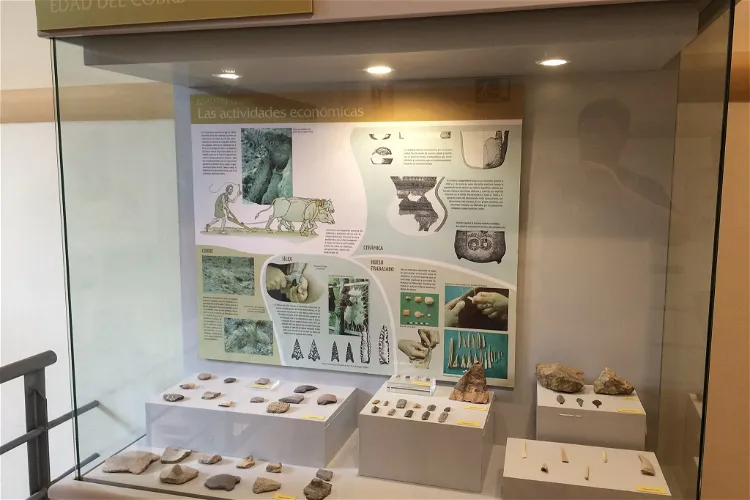
Galera Archaeological Museum
GaleraThe Galera Archaeological Museum is a space dedicated to showcasing the archaeological and paleoanthropological findings from the Spanish municipality of Galera, located in the province of Granada. It provides a unique opportunity for visitors to delve into the rich history and culture of the region through its extensive collection of artifacts.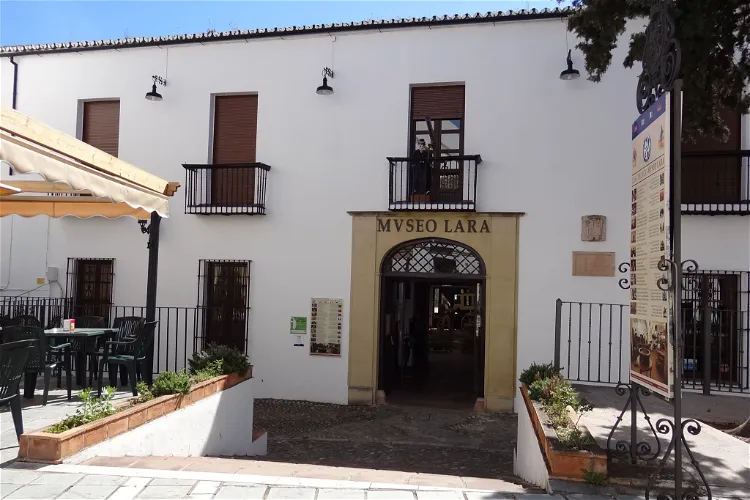
Lara Museum
RondaEl Museo Lara is an art and antiquities museum situated in the city of Ronda, in the province of Malaga, Spain. This museum is a significant cultural landmark in the region, offering visitors a chance to explore a vast collection of art and antiquities.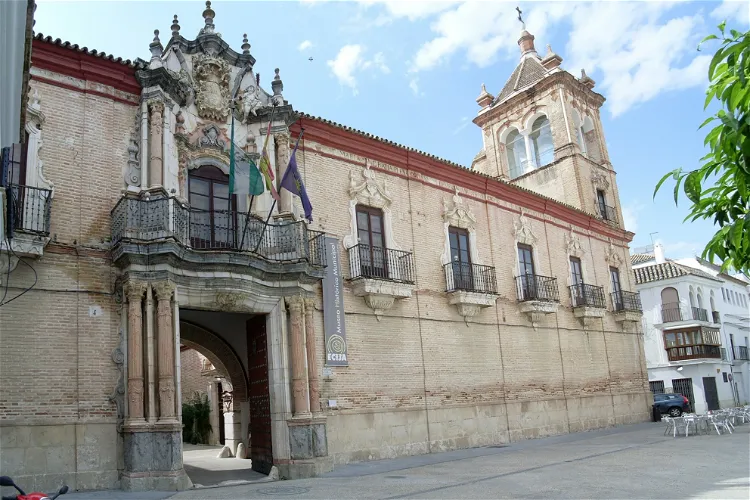
Municipal History Museum of Écija
ÉcijaThe Municipal Historical Museum of Écija is housed in the Benamejí palace, a significant historical site in the city of Écija, located in the province of Seville, Andalusia, Spain. This location adds a layer of historical significance to the museum, making it a fascinating destination for those interested in the rich history of the region.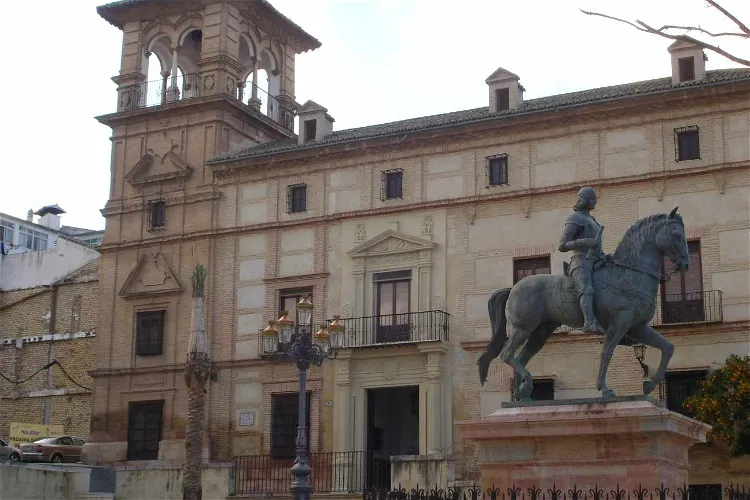
Municipal Museum of Antequera
AntequeraThe Municipal Museum of Antequera (MVCA) is a comprehensive museum that houses a diverse collection of fine arts, archaeological, and ethnological exhibits. Located in the city of Antequera, Spain, the museum offers a rich exploration of history from prehistoric times to the present day. It is a significant cultural institution in the region, providing visitors with a deep understanding of the area's historical and cultural heritage.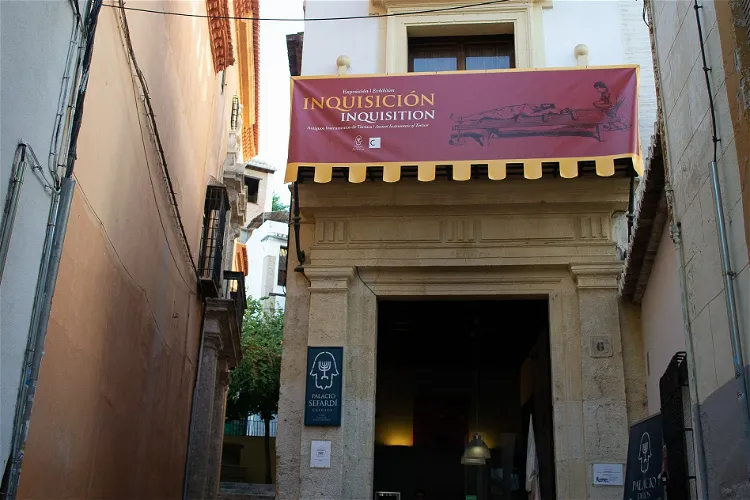
Palace of the Forgotten
GranadaThe Palace of the Forgotten, located in Granada, Spain, is a museum that focuses on the Spanish Inquisition, Jewish history, and the heritage of Granada and Andalusia. This museum provides a unique opportunity to delve into the rich and complex history of these subjects, offering a comprehensive understanding of the region's past.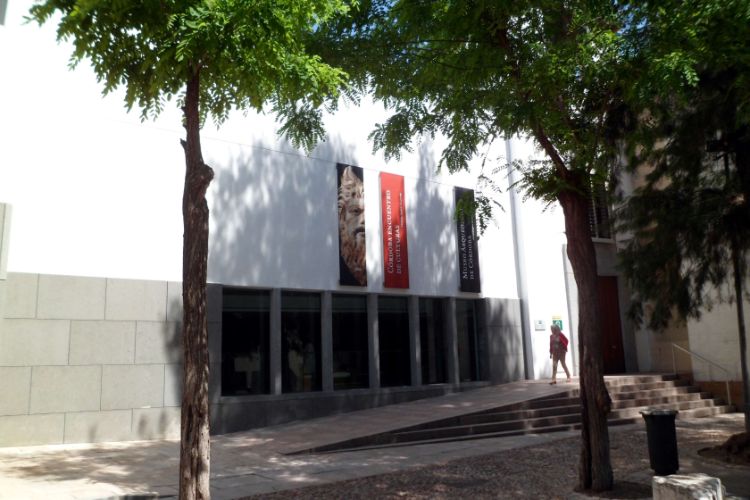
Archaeological Museum of Córdoba
CórdobaThe Archaeological Museum of Córdoba is housed in the former palace of the Páez de Castillejo and a contemporary building built next to it. Its collections consists of a wide variety of pieces that range from Prehistory to the Late Middle Ages. Underground, the museum displays the archaeological rem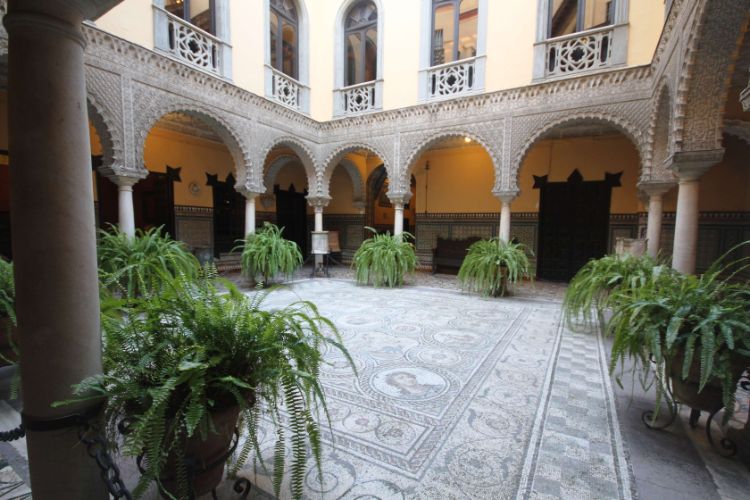
Museo Palacio de la Condesa de Lebrija
SevilleMuseo Palacio de la Condesa de Lebrija (Museum of the palace of the countess of Lebrija or palace of Lebrija) is a house museum/palace in Seville that dates from the 16th century. The museum houses an important art collection with Roman mosaics and other antiquities as well as Asian art, paintings b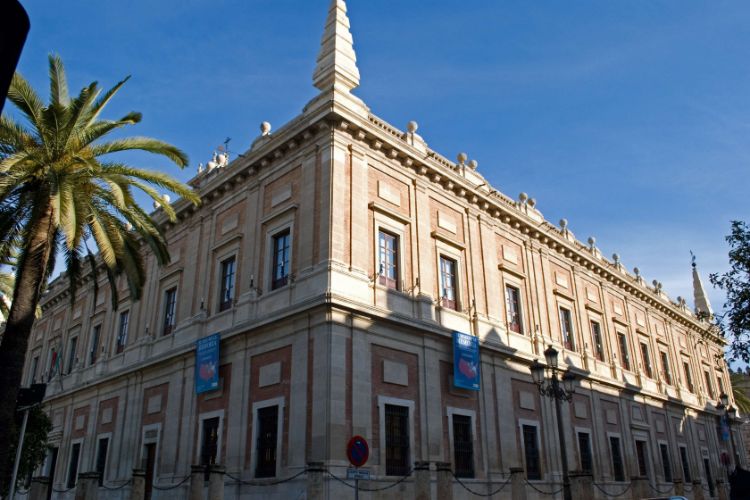
Archivo General de Indias
SevilleArchivo General de Indias (The General Archive of the Indies) is housed in the ancient merchants' exchange of Seville and holds the valuable archival documents that illustrate the history of the Spanish Empire in the Americas and the Philippines. The building, called Casa Lonja de Mercaderes, is a g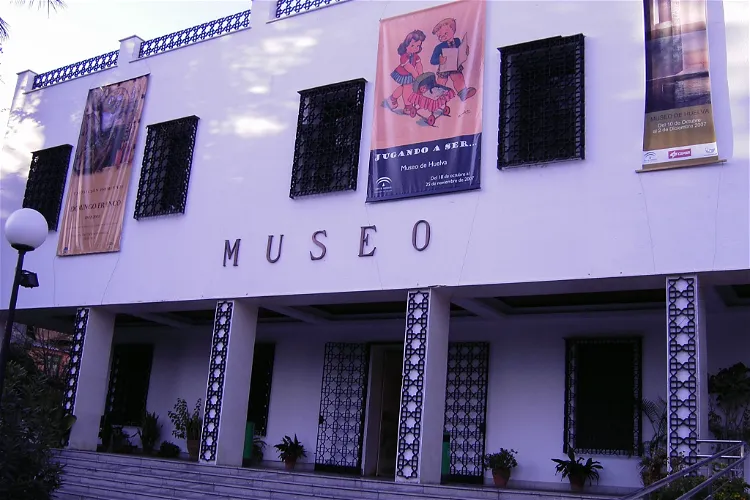
Museum of Huelva
HuelvaThe Museum of Huelva is divided into three distinct sections: Fine Arts, Archaeology, and Ethnology. Each section offers a unique insight into the rich cultural and historical heritage of the region. The museum has been declared a Cultural Interest Asset, with the category of Monument, further emphasizing its importance and value.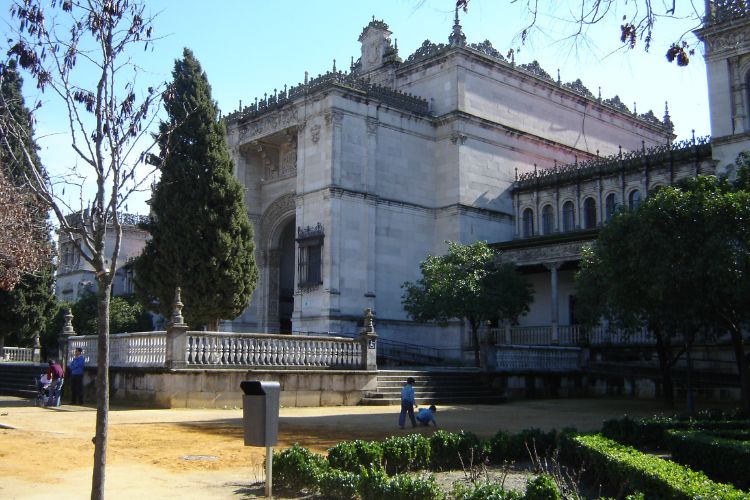
Archaeological Museum of Sevilla
SevilleThe Archaeological Museum of Sevilla is a history museum in Seville that is housed in a Neo-Renaissance building constructed for the Latin American Expo of 1929. It holds and displays archaeological discoveries from the prehistoric and Roman periods. Its main focus is the Roman period, but there are- 22
Frigiliana Museum of Archaeology
FrigilianaThe Frigiliana Archaeological Museum, also known as MAF, is situated in a building known as the Apero in the charming town of Frigiliana. This town is located in the province of Malaga, Spain. The museum is easily accessible and offers a unique opportunity to delve into the rich history of the region. 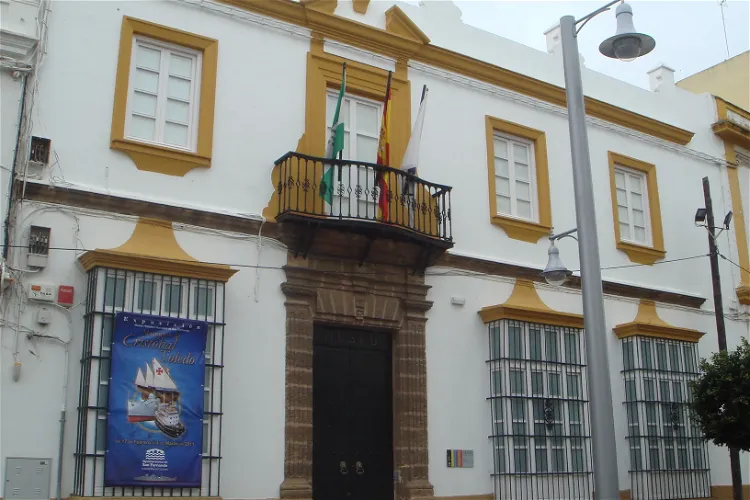
Museo Histórico Municipal de San Fernando
San FernandoThe Museo Histórico Municipal de San Fernando, founded in 1986, is situated on Calle Real. This location is significant as it is also home to other notable landmarks such as the town hall, the Church of San Pedro and San Pablo, the Church of El Carmen, the Castle of San Romualdo, the old Captaincy General and the Callejón Croquer. This central location makes the museum easily accessible for tourists and provides an opportunity to explore other historical sites in the vicinity.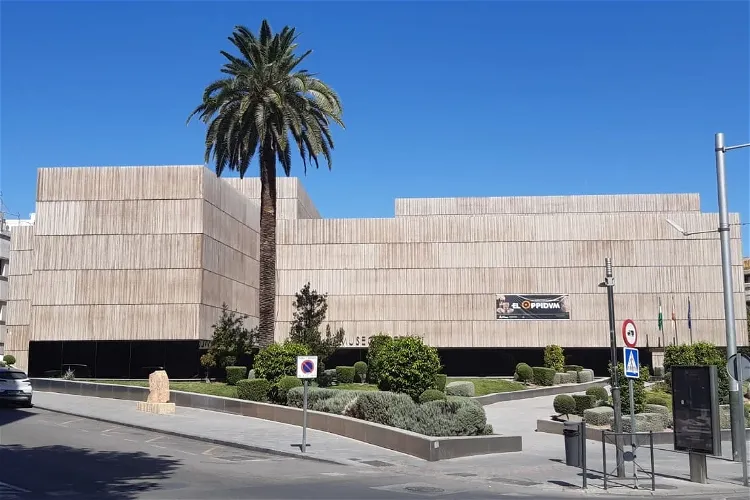
Iberian Museum
JaénThe Iberian Museum, situated in the city of Jaén, Spain, is home to an impressive collection of Iberian art. This collection primarily consists of pieces from the existing collection at the Jaén Museum and other funds, as well as new archaeological finds. The museum aims to become an international reference point for Iberian art.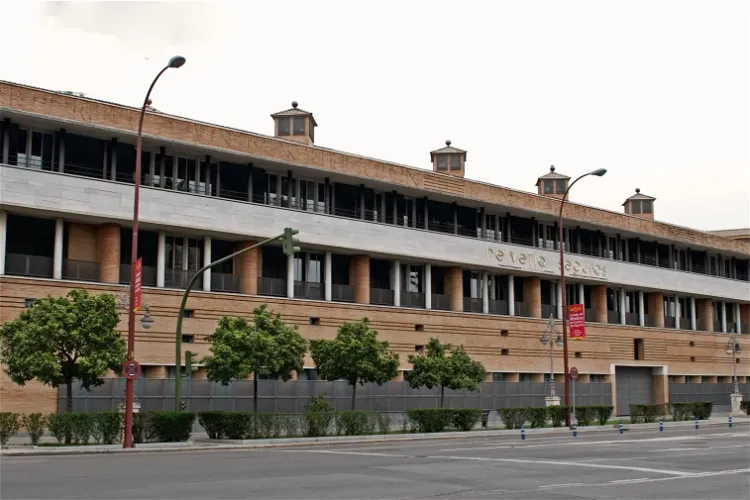
Bank of Spain Building
JaénThe Moneo Building is a unique architectural structure, characterized by its large cubic volume and a succession of steel and concrete volumes within others. It is a robust and impregnable building, with thick walls. The exterior facade is almost entirely covered by Red Alicante marble with a rough finish, providing a striking contrast to the grayish entrance where the name 'Bank of Spain' is inscribed. This unique design and structure make it a point of interest for tourists.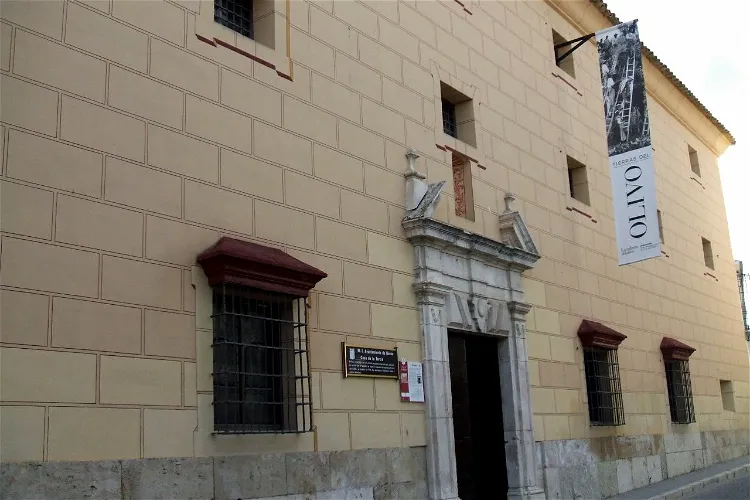
History and Archaeology Museum
BaenaThe Historical and Archaeological Museum of Baena is a municipal museum situated in the city of Baena, in the province of Córdoba, Spain. It is a significant cultural institution that offers a deep dive into the rich history and archaeology of the region.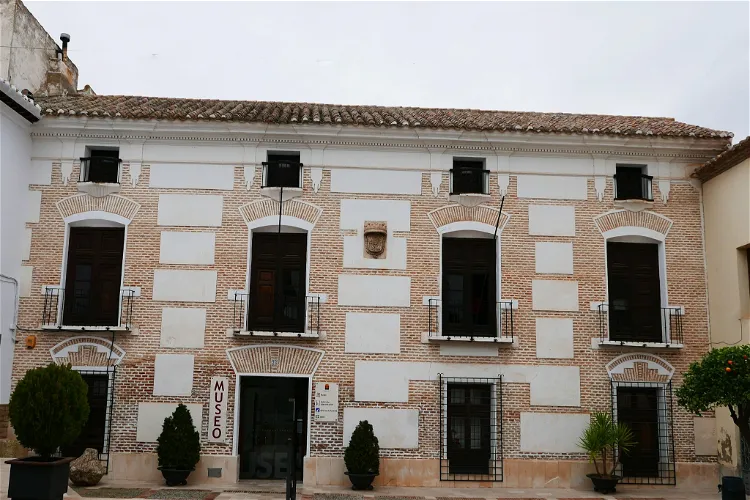
Velezano County Museum "Miguel Guirao"
Vélez-RubioThe Velezano County Museum Miguel Guirao is situated in the charming municipality of Vélez-Rubio, within the province of Almería, Spain. This location offers visitors a chance to explore the rich history and culture of the region while enjoying the beautiful surroundings of Vélez-Rubio.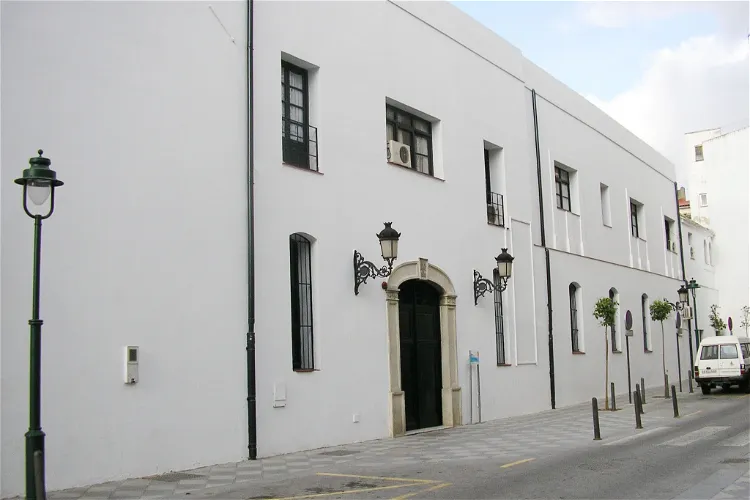
Municipal Museum of Algeciras
AlgecirasThe Municipal Museum of Algeciras, also known as Museo Municipal de Algeciras, is situated in Algeciras, Spain. It is conveniently located at the northern end of the Parque de las Acacias de Algeciras, making it easily accessible for tourists visiting the park.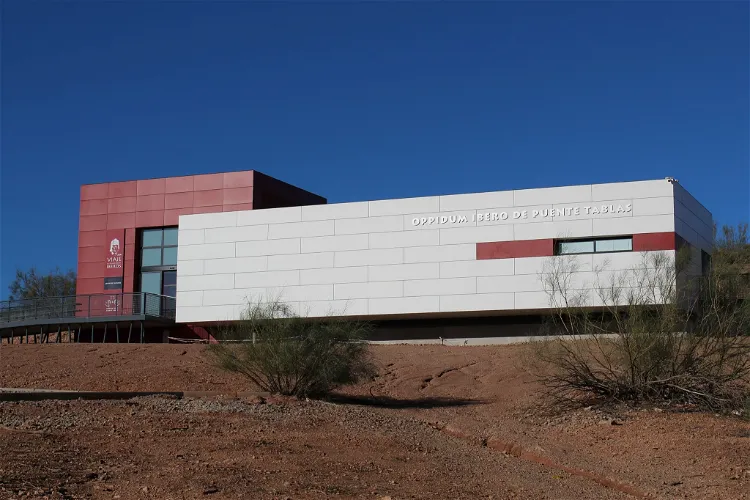
Oppidum Íbero Bridge Tables
JaénThe Oppidum Íbero de Puente Tablas is a significant Iberian archaeological site located in Puente Tablas, a part of Jaén municipality in Spain. It is considered one of the most important national sites from the Iberian period. The site is situated on the right bank of the Guadalbullón River, in the Eastern Campiña. It currently enjoys legal protection as a Site of Cultural Interest, with the category of Archaeological Zone.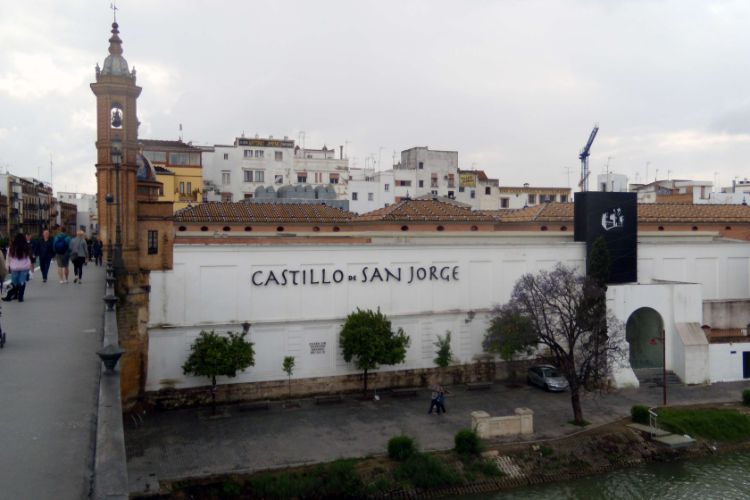
Museo del Castillo de San Jorge
SevilleMuseo del Castillo de San Jorge is a history museum in Seville where visitors can learn about the darkest times of the Spanish Empire. The museum is dedicated to the Spanish Inquisition. It is housed in the medieval fortress where its first council was held and which later served as its headquarters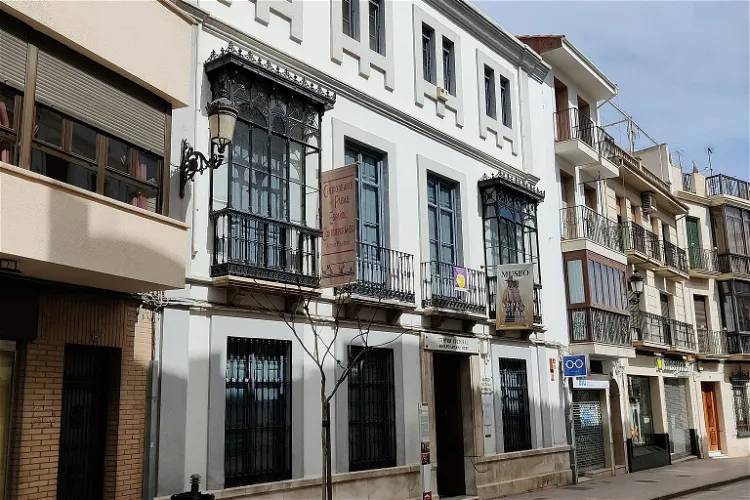
Adolfo Lozano Sidro House Museum
Priego de CórdobaThe Municipal Historical Museum of Priego de Córdoba is a cultural institution managed and owned by the local municipality. It is situated in the town of Priego de Córdoba, in the province of Córdoba, Spain. The museum offers a unique opportunity to explore the rich history and culture of the region.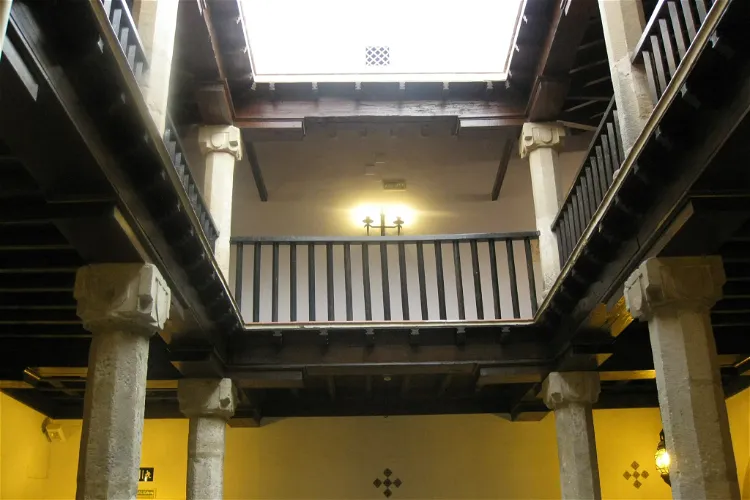
Archaeological Museum of Ubeda
ÚbedaThe Archaeological Museum of Úbeda, situated in the city of Úbeda in the province of Jaén, Spain, is a museum dedicated to the exhibition and study of archaeological pieces. This museum provides a unique opportunity for visitors to delve into the rich history and culture of the region through its extensive collection of archaeological artifacts.
Espera Archaeological Museum
EsperaThe Espera Archaeological Museum, also known as MAE, is situated in the town of Espera in Cádiz, Spain. The museum is housed in an 18th-century palace, providing a historical setting for the archaeological exhibits. Visitors can explore the rich history of the region through the museum's collections and exhibitions.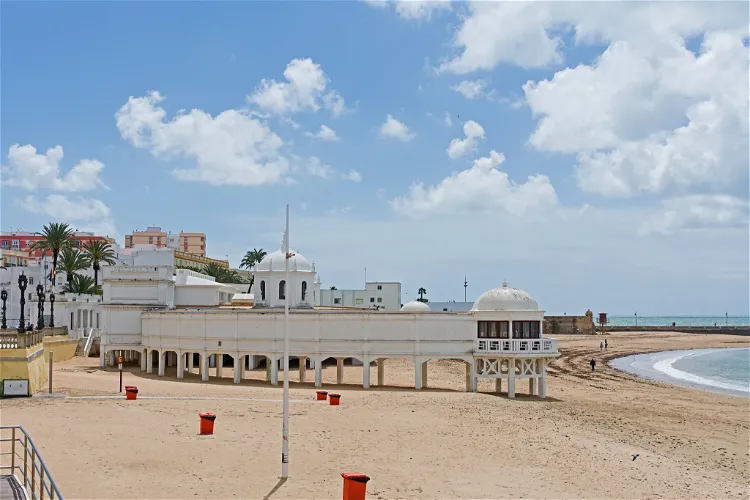
Underwater Archaeology Center
CádizThe Underwater Archaeology Center of Andalusia is situated in the city of Cádiz, housed in the Balneario de la Palma y del Real building. This building has been declared a site of cultural interest, adding to the historical significance of the center itself.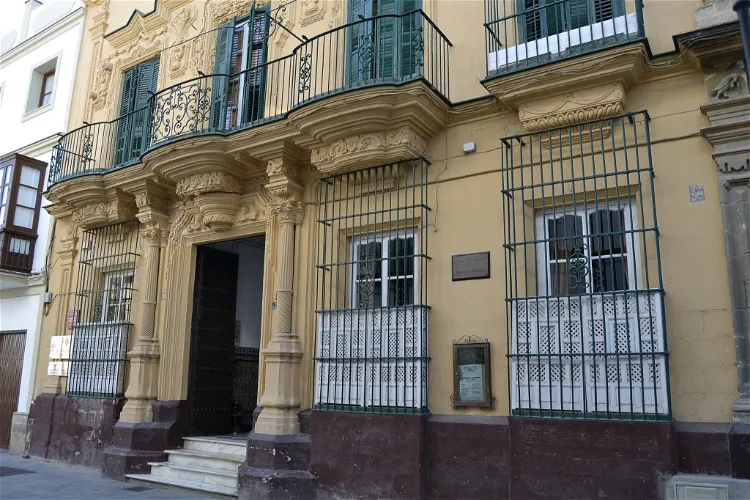
Museo Arqueológico Municipal de El Puerto de Santa María
El Puerto de Santa MaríaCurrently, the museum is located in a neoclassical building from 1753 in the Barrio Alto. Here, visitors can view a variety of exhibits, including Visigothic pieces, items from the Andalusian farmhouses of El Puerto, and ceramics from the 16th and 17th centuries. The building itself, with its historical architecture, adds to the overall experience of the museum visit.
Archaeological Dolmens of Antequera
AntequeraThe archaeological area of the dolmens of Antequera comprises the dolmens that give it its name, including the Menga dolmen, Viera dolmen, and El Romeral tholos. Additionally, there are a series of sites directly related to this necropolis, such as Cerro del Marimacho or Cerro de Antequera and Carnicería de los Moros or Villa Romana de Antequera site. These sites offer a rich insight into the historical and cultural significance of the area.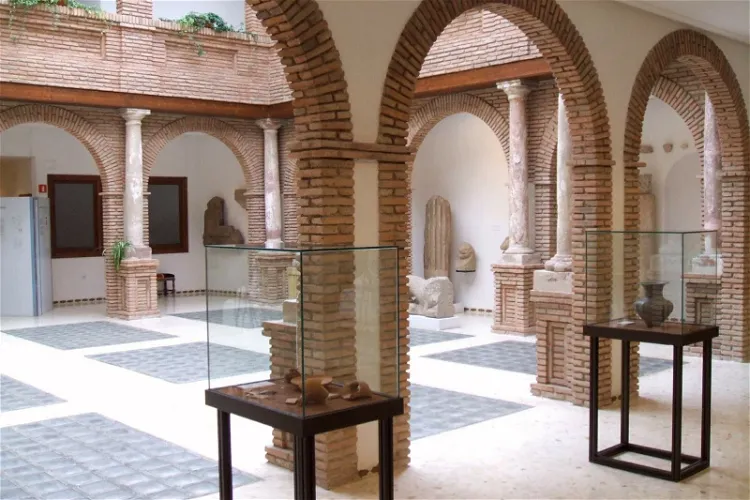
Linares Archaeology Museum
LinaresThe Linares Archaeological Museum is a unique institution dedicated to the study and display of archaeological artifacts from the ancient Iberian-Roman city of Cástulo, which was once the capital of Oretania. This city is located in the current municipality of Linares, in the province of Jaén, Spain. The museum's collections provide a fascinating insight into the history and culture of this ancient civilization.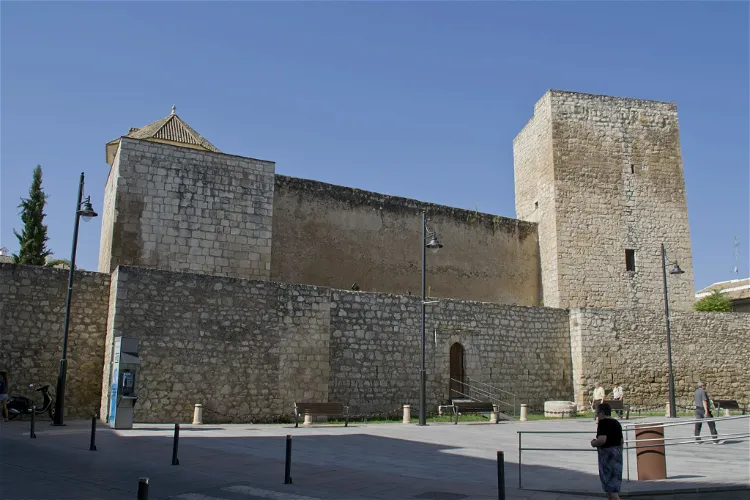
Castle of the Moral
LucenaThe Castle of the Moral, also known as the Castle of Lucena, is a military fortress located in the municipality of Lucena, Córdoba, Spain. It is a significant historical site that dates back to the arrival of the Almohad Empire in the villages in 1148. The castle was strategically built to safeguard the Cora Cabra-Baena, which was possibly very unstable and governed through the control of North-South commercial caravans.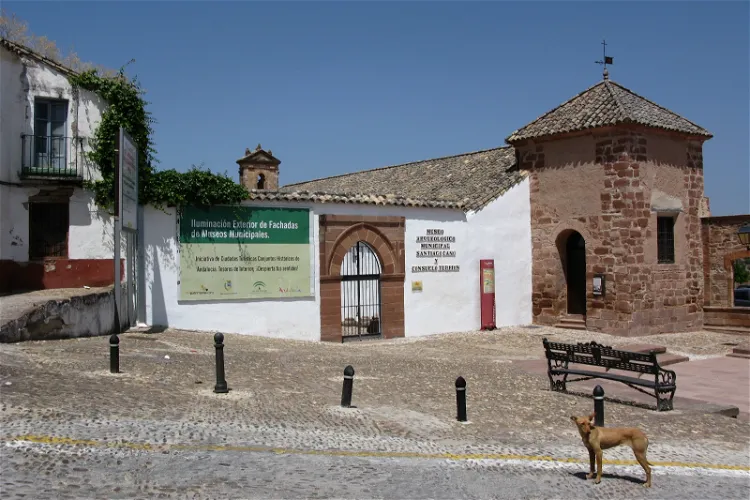
Archaeological Town Museum
MontoroThe Archaeological Municipal Museum of Montoro is a city-owned and managed museum located in the city of Montoro, in the province of Córdoba, Spain. This museum is a significant part of the city's cultural heritage and offers visitors a chance to explore the rich history of the region.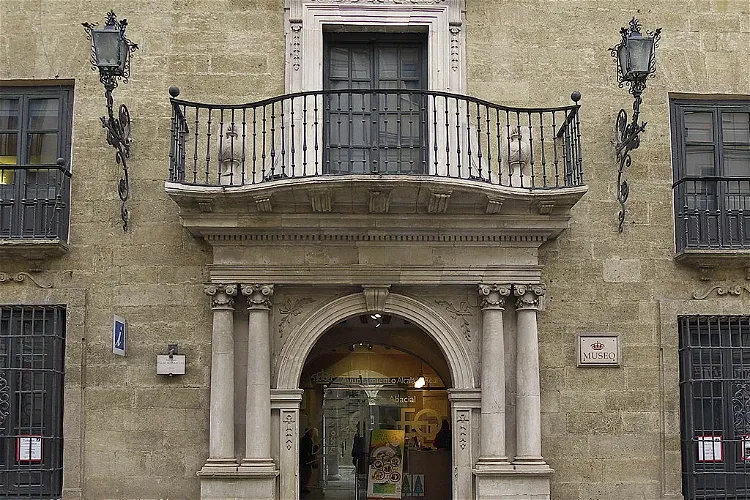
Abbey Palace
Alcalá la RealThe Municipal Museum of Alcalá la Real is a significant cultural institution in the province of Jaén, Spain. Managed and owned by the municipality, it is situated in the town of Alcalá la Real. The museum offers a rich collection of archaeological, ethnological, anthropological, paleontological, and scientific exhibits, making it a fascinating destination for those interested in a wide range of disciplines.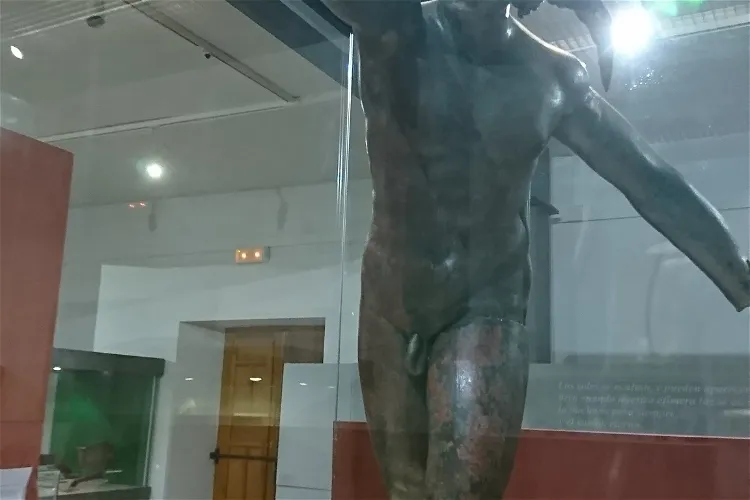
Historical Archaeological Museum of Almedinilla
AlmedinillaThe museum was officially opened in 1999 and occupies a space of 1200 square meters. The exhibition space is divided into three rooms: Sala del Aceite, Sala Íbera, and Sala Romana. Each room is dedicated to a specific period or theme, providing visitors with a comprehensive understanding of the region's history and culture.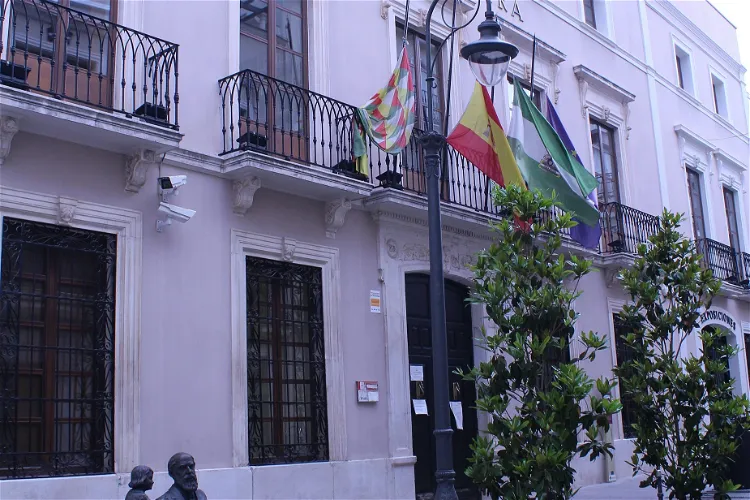
Municipal Archaeological Museum Cabra
CabraThe Municipal Archaeological Museum of Cabra (MAC) is a significant historical site located in the city of Cabra, in the province of Córdoba, Spain. It holds the distinction of being the oldest municipal museum in the province. The museum was established by ministerial order on January 15, 1973, following the discovery of numerous Roman sculptures and mosaics during the excavations of the Villa del Mitra.
Museo Histórico Municipal de Carcabuey
CarcabueyThe Museo Histórico Municipal de Carcabuey is a municipal museum situated in the town of Carcabuey, in the province of Córdoba, Spain. It is managed and owned by the municipality, making it an integral part of the local community and its cultural heritage.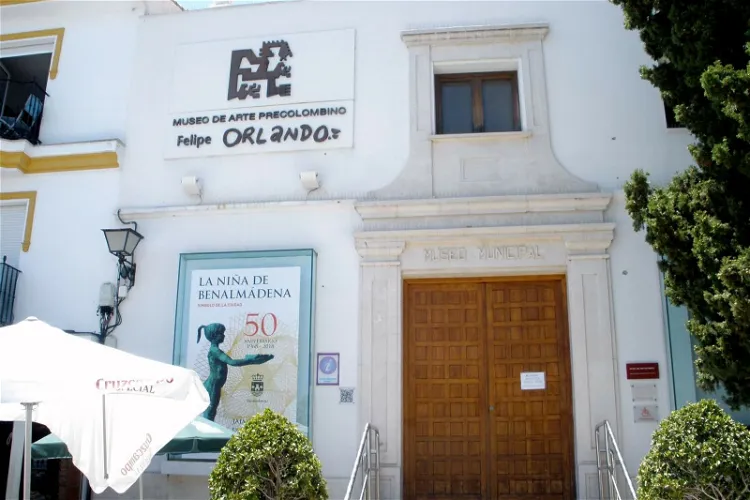
Benalmádena Museum
BenalmádenaThe Benalmádena Museum, previously known as the Municipal Archaeological Museum of Benalmádena, is situated in the heart of the old town, Benalmádena Pueblo, in the coastal municipality of Benalmádena, Málaga, Spain. This location offers visitors a chance to explore the rich history and culture of the region while enjoying the scenic beauty of the coastal town.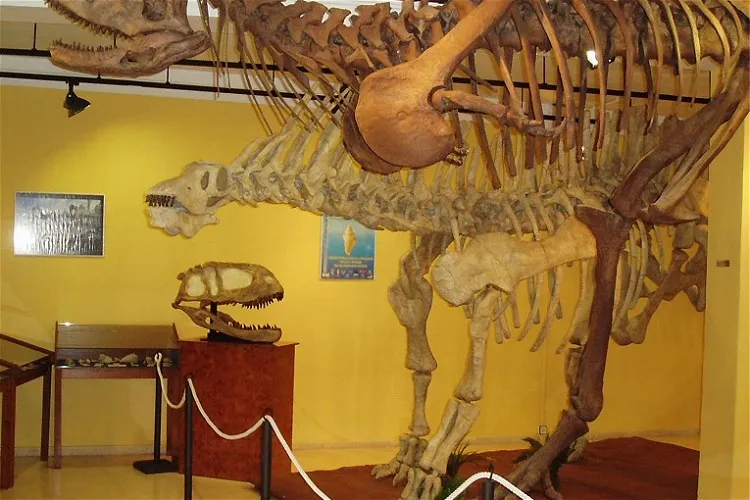
Ethnographic Museum
EsteponaThe Municipal Museum of Estepona is a unique museum complex located in Estepona, Spain. It is composed of five sub-museums, each dedicated to a different theme. These themes include archaeology, paleontology, ethnography, bullfighting, and image and sound. This diverse range of themes provides a comprehensive insight into the rich history and culture of Estepona and the surrounding region.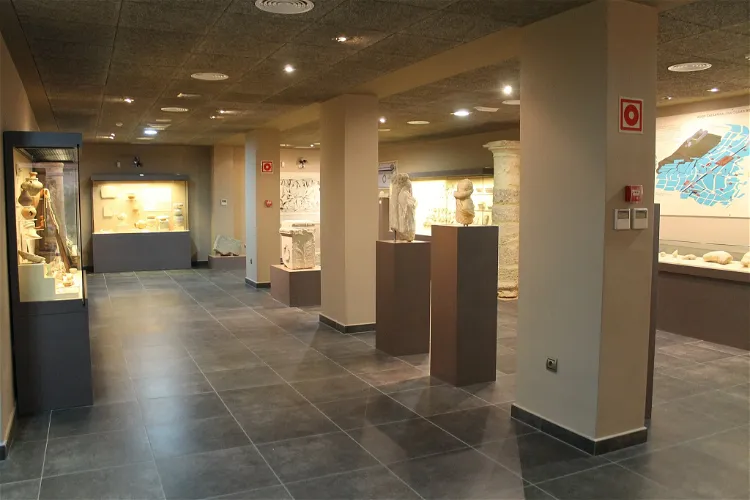
Museum and Archaeological Complex of Medina Sidonia
Medina SidoniaThe Archaeological Museum of Medina Sidonia is centrally located in the town of Medina Sidonia, in the province of Cadiz, Spain. This location makes it easily accessible for tourists visiting the area. The museum is an important cultural and historical site that offers insights into the rich archaeological and numismatic heritage of the city.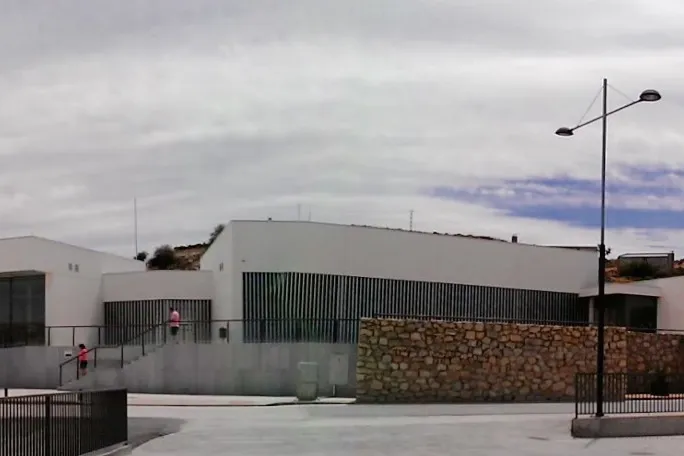
Museo Primeros Pobladores de Europa
OrceThe Museo de Prehistoria de Orce is a Spanish institution that is dedicated to showcasing the archaeological discoveries made in the Orce region, located in the province of Granada. This museum provides a unique opportunity for visitors to learn about the prehistoric inhabitants of Europe and their way of life.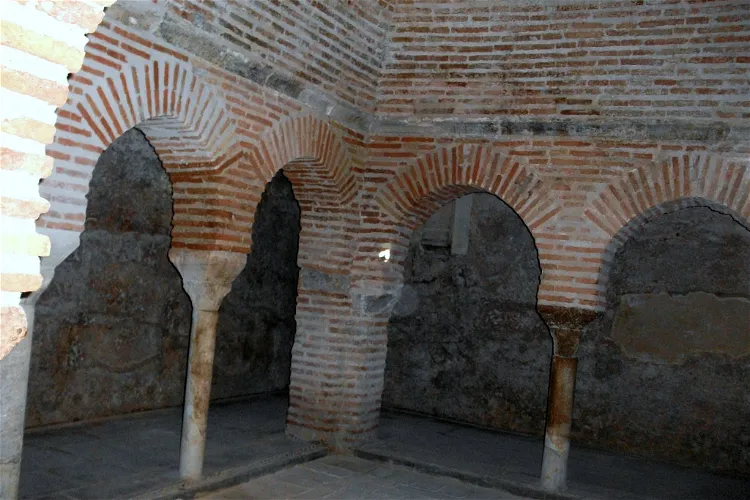
Arab Baths
BazaThe Arab Baths of Baza, also known as the Baths of the Jewish Quarter, are a significant historical site dating back to the 13th century. These baths are a prime example of urban baths associated with the ancient mosque, now the Church of Santiago. They were located in the old Marzuela suburb, now the Santiago neighborhood. The baths were discovered by historian Manuel Gómez Moreno in the late 19th century.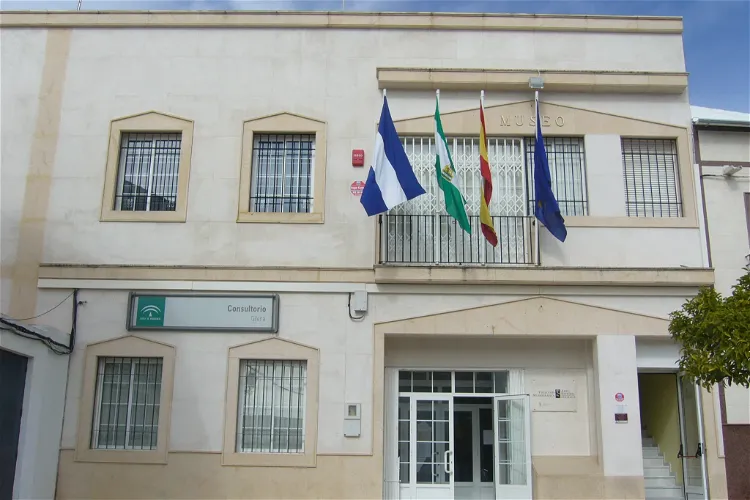
Colección Museográfica de Gilena
GilenaThe Colección Museográfica de Gilena, located in the municipality of Gilena in the province of Seville, Spain, offers a permanent exhibition divided into two distinct areas. One area is dedicated to the artistic work of local painter Francisco Maireles Vela, providing a didactic explanation of his contributions to the art world. The other area focuses on the historical and cultural evolution of the town, tracing its history from Prehistory to the Visigothic society.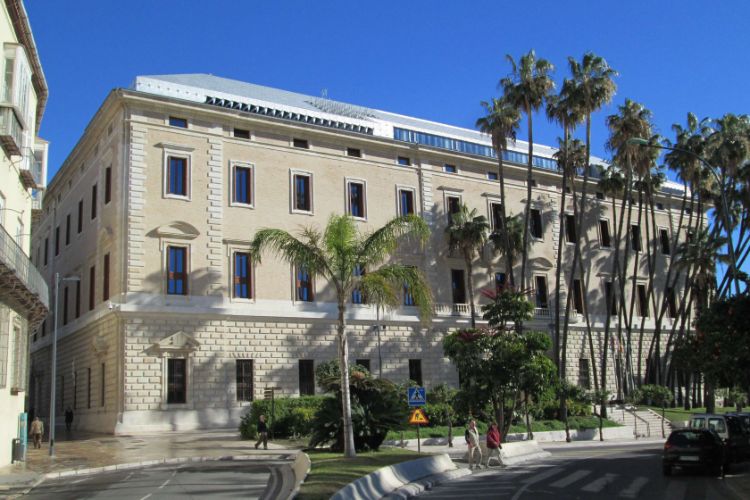
Museo de Málaga
MálagaThe Museo de Málaga is a museum in Málaga that includes the collections of the former Museo Provincial de Bellas Artes and Museo Arqueológico Provincial. The museum holds a collection of more than 2,000 pieces related to the Fine Arts and over 15,000 related to Archaeology.- 51
Castillo del Moral
MorilesThis building has throughout history served as a fortress, prison and palace. Now, you can visit it for its archaeological museum. - 52
Museo Municipal de Palma del Río
Palma del RíoThe Museo Municipal de Palma del Río is a museum that is managed and owned by the municipality. It is located in the city of Palma del Río, which is in the province of Córdoba, Spain. This museum is a representation of the city's commitment to preserving and showcasing its rich history and culture. - 53
Museo Arqueológico Profesor Sotomayor
AndújarThe Museo Arqueológico Profesor Sotomayor is a museum situated in the city of Andújar, in the province of Jaén, Spain. It is a significant location for those interested in archaeology and history, offering a unique insight into the past of the region. - 54
Dolmen de Soto
NieblaThe Dolmen de Soto, located in Trigueros, Andalucía, Spain, is a Neolithic subterranean structure. It is estimated to have been built between 4,500 and 5,000 years ago, making it a significant historical site. This structure is one of the many remnants of the Neolithic period, providing a glimpse into the past and the early human civilizations that once inhabited the region.